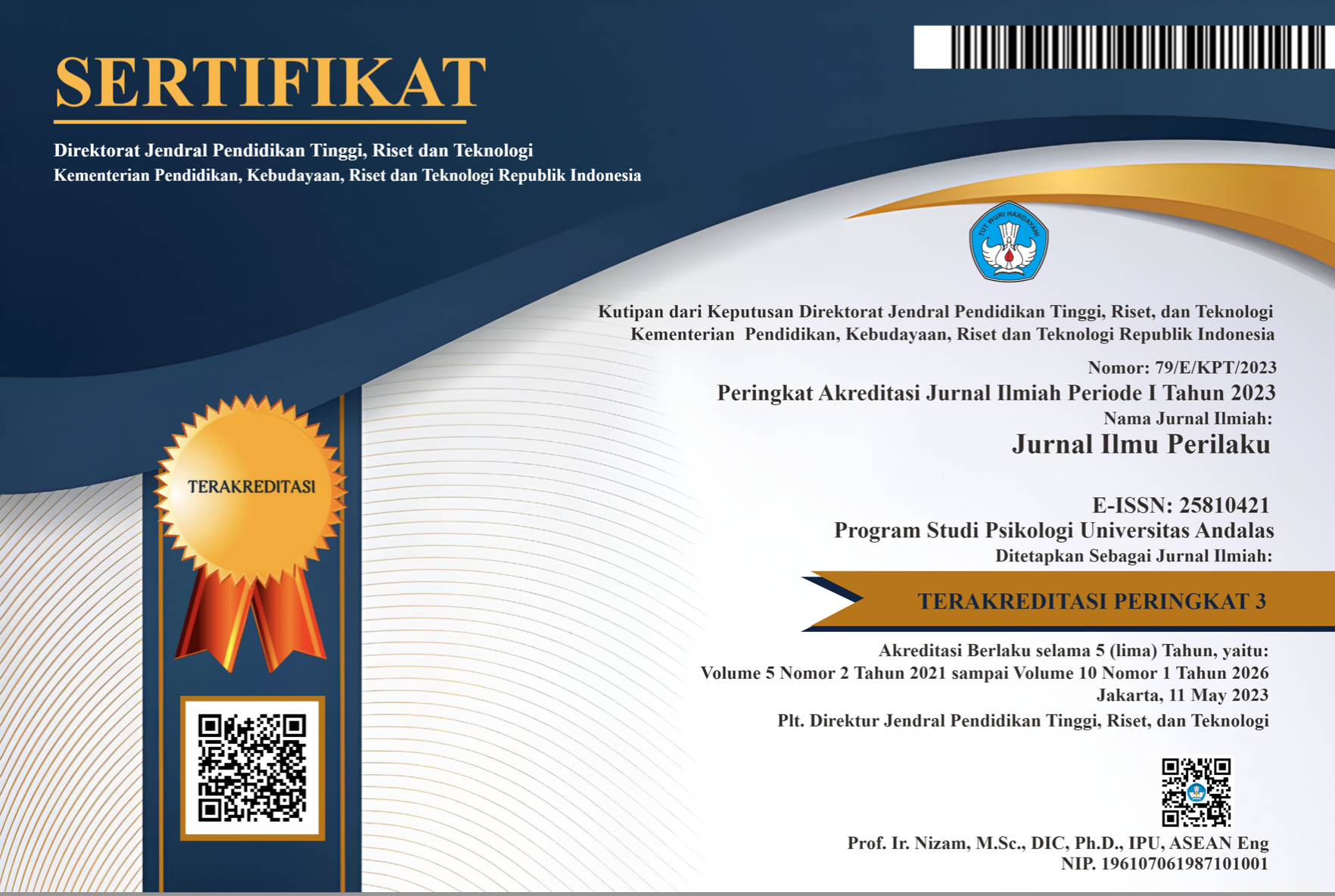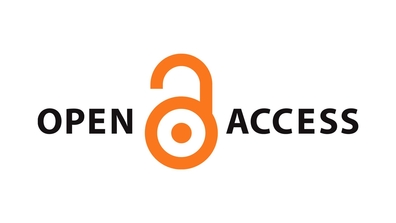Propertis Psikometris Skala Sikap Terhadap Pelajaran Sosial Humaniora
Abstract
The purpose of research was to assess psychometric properties of scale attitude toward social sciences subject: Economics, Sociology, History and Geography. Psychometric properties consisted of validity, reliability and item discrimination. The subjects were 198 high school students with purposive sampling method. Scale used semantic differensial format with overall 68 items. One item unpassed, 67 items passes selection with rit ≥ 0,400. Factorial validity confirmed 3 assumed factors: activity, evaluation and potential. Convergent validity showed positive correlation among subscale. The parallel test reliability showed of equivalent coefficient rxx’ 0,939. The final scale consisted of 12 items, easily in used and scoring. The scale could be used for research, external validation of other scale, high school majoring, educational counseling, learning evaluation, education intervension and university majoring. The next research was to validate with external criterion especially academic achievement.
Downloads
References
Azwar, S. (2011). Sikap manusia: teori dan pengukurannya. Yogakarta: Pustaka Pelajar.
Azwar, S. (2013). Penyusunan skala psikologi. Ed. Ke-2. Yogyakarta: Pustaka Pelajar.
Case, K. (2011). Primary 6th grade students’ attitude toward the social studies lesson aided with Geografic information system. Middle East Journal of Scientific Research, 7 (3): 401-406.
Craker, D. E. (2006). Attitudes toward science of students enrolled in introductory level science courses at UW-La Crosse. Journal of Undergraduate Research IX, 1-6.
Cohen, R. J., Swerdlik, M. E. (2005). Psychological testing and assessment: An introduction to test and measurement. New York: Mc Graw Hill.
DeVellis, R. F. (2003). Scale development: Theory and application. 2nd Ed. London: Sage Publications.
Gbore, L.O. (2013). Relative contributions of selected teachers’ variables and students’ attitudes toward academic achievement in Biology among senior secondary school students in Ondo State, Nigeria. Mediterranean Journal of Social Sciences, 4 (1), 243-250.
Khaled, A. F. (2013). Jordanian students attitudes toward social studies education. The Journal of International Social Research, 6 (12), 227-236.
Kurpius, S. E. R., Stafford, M. E. (2006). Testing and measurement: A user-friendly guide. London: Sage Publications.
Lahey, B. B. (2007). Psychology: an introduction. 9th Ed. Mc Graw Hill: New York.
Lievens, F., Coetsier, P., De Fruyt, F. & De Maeseneer. (2002) Medical students’ personality characteristics and academic performance: A five-factor model perspective. Medical Education, 36, 1050–1056.
Marliana, L. (2013). Pengaruh sikap belajar siswa terhadap prestasi belajar siswa pada mata pelajaran ekonomi dengan dimoderasi motivasi belajar. Skripsi. Bandung: Universitas Pendidikan Indonesia.
Meilani, A. (2011). Hubungan antara sikap siswa terhadap pelajaran Geografi dan motivasi belajar dengan prestasi belajar Geografi siswa kelas xi ips SMA Swadhipa. Skripsi. Lampung: Universitas Lampung.
Naisaban, L. (2003). Psikologi jung: tipe kepribadian manusia dan rahasia sukses dalam hidup. Jakarta: Gramedia.
Nyamwembe, E. O., Ondigi, S. Kiio, M. (2013). Attitudes of students toward studying history and government in some selected secondary schools in Mosocho
Division, Kisii County, Kenya. Journal of Education and Practice. 4 (11), 17-27.
Oncu, E. (2013). The psychometric properties of the physical education lesson attitude scale for preservice classroom teachers. Australian Journal of Teacher Education, 38 (1), 97-114.
Ozdemir, U. (2012). High school students’ attitudes towards geography courses. World Applied Sciences Journal, 17 (3), 340-346.
Ormrod, J. E. (2006). Educational psychology: Developing learners. 5th Ed. New York: Mc Graw Hill.
Periantalo, J. (2015a). Validitas alat ukur psikologi: Aplikasi praktis. Yogyakarta: Pustaka Pelajar.
Periantalo, J. (2015b). Penyusunan skala Psikologi: Asyik, mudah dan bermanfaat. Yogyakarta: Pustaka Pelajar.
Periantalo, J. (2016). Penelitian kuantitatif untuk Psikologi. Yogyakarta: Pustaka Pelajar.
Periantalo, J. (2017). Statistika dasar untuk Psikologi. Yogyakarta: Pustaka Pelajar.
Periantalo, J. (2012). Konstruksi skala kepribadian dari tipologi kepribadian Jung dan Myers Briggs. Tesis. Yogyakarta: Fakultas Psikologi UGM.
Periantalo, J., Fadzlul, Saputra, N. E. (2013). Konstruksi skala sikap terhadap pelajaran matematika dan sains. Penelitian Dosen. Jambi: Universitas Jambi.
Sudharakar, G., Selvakumar, D. (2013). A study on attitude toward learning Geograpy and study involvement. Conflux Journal of Educational, 1 (3) , 1-5.
Susanti, I. R. (2013). Pengaruh sikap pada pelajaran ekonomi dan intensitas terhadap kemampuan memahami konsep pada siswa sma negeri cilacap. Skripsi. Yogyakarta: Universitas Negeri Yogyakarta.
Sutarsih. (2010). Hubungan antara hasil belajar sosiologi dengan sikap siswa terhadap lingkungan sosial. Skripsi. Jakarta: UIN Syarief Hidayatullah.
Suryabrata, S. (2005). Pengembagan alat ukur psikologis. Yogyakarta: Penerbit Andi.
Urbina, S. (2004). Essential of psychological testing. New Jersey: John Wiley & Sons.
Widhiarso, W. (2009). Prosedur analisis faktor dengan menggunakan program computer. Handout mata kuliah psikometri. Yogyakarta: Fakultas Psikologi UGM.
Widhiarso, W. (2011). Indeks daya beda item. Diambil dari http://wahyupsy.blog.ugm.ac.id/
Wyk, M. M. V. (2012). Measuring students’ attitudes to economics education: A factorial analysis approach. Journal Social Science, 31 (1), 27-42.
The non-commercial use of the article is governed by the Creative Commons Attribution license as currently displayed on Creative Commons Attribution-NonCommercial-ShareAlike 4.0 International License.
JIP's spirit is to disseminate articles published are as free as possible. Under the Creative Commons license, JIP permits users to copy, distribute, display, and perform the work for non-commercial purposes only. Users will also need to attribute authors and JIP on distributing works in the journal.
Please find the rights and licenses in Jurnal Ilmu Perilaku (JIP).
- License
The non-commercial use of the article will be governed by the Creative Commons Attribution license as currently displayed on Creative Commons Attribution-NonCommercial-ShareAlike 4.0 International License.
- Author’s Warranties
The author warrants that the article is original, written by stated author(s), has not been published before, contains no unlawful statements, does not infringe the rights of others, is subject to copyright that is vested exclusively in the author and free of any third party rights, and that any necessary written permissions to quote from other sources have been obtained by the author(s).
- User Rights
JIP's spirit is to disseminate articles published are as free as possible. Under the Creative Commons license, JIP permits users to copy, distribute, display, and perform the work for non-commercial purposes only. Users will also need to attribute authors and JIP on distributing works in the journal.
- Rights of Authors
Authors retain the following rights:
- Copyright, and other proprietary rights relating to the article, such as patent rights,
- The right to use the substance of the article in future own works, including lectures and books,
- The right to reproduce the article for own purposes, provided the copies are not offered for sale,
- The right to self-archive the article.
- Co-Authorship
If the article was jointly prepared by other authors, the signatory of this form warrants that he/she has been authorized by all co-authors to sign this agreement on their behalf, and agrees to inform his/her co-authors of the terms of this agreement.
- Termination
This agreement can be terminated by the author or JIP upon two months’ notice where the other party has materially breached this agreement and failed to remedy such breach within a month of being given the terminating party’s notice requesting such breach to be remedied. No breach or violation of this agreement will cause this agreement or any license granted in it to terminate automatically or affect the definition of JIP.
- Royalties
This agreement entitles the author to no royalties or other fees. To such extent as legally permissible, the author waives his or her right to collect royalties relative to the article in respect of any use of the article by JIP or its sublicensee.
- Miscellaneous
JIP will publish the article (or have it published) in the journal if the article’s editorial process is successfully completed and JIP or its sublicensee has become obligated to have the article published. JIP may conform the article to a style of punctuation, spelling, capitalization, referencing and usage that it deems appropriate. The author acknowledges that the article may be published so that it will be publicly accessible and such access will be free of charge for the readers.










